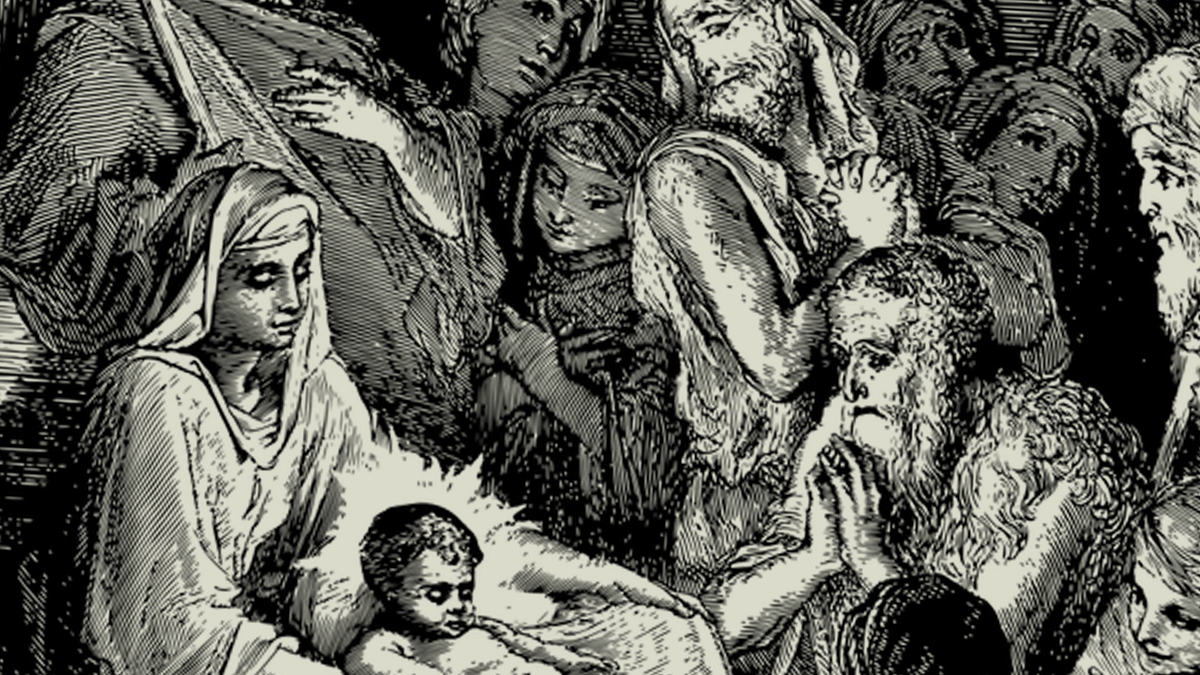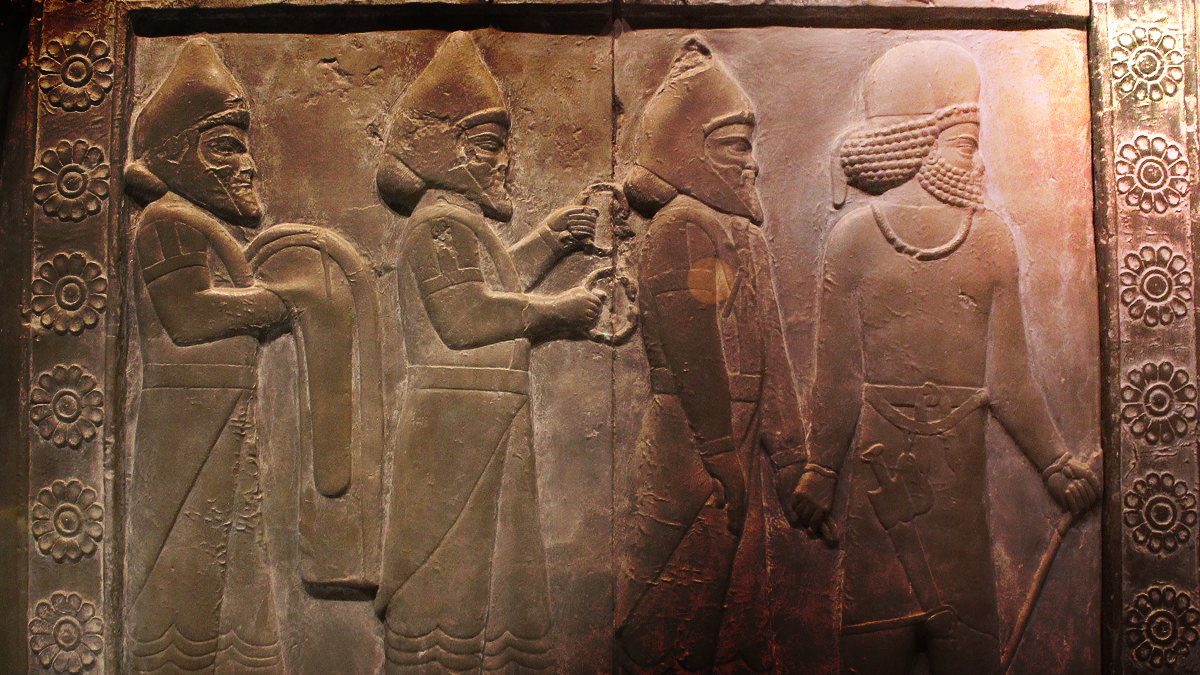Basic Facts About Matthew (Part 3)
“Caution: Engage mind before engaging mouth” might be words of warning every person should review, before speaking in any situation. Jesus declares in Matthew 12:34 that our words reveal our inner man, and then goes on to emphasize that one’s actions are consistent with his thoughts (vs. 35, which echoes the basic point of Proverbs 23:7). Our Lord follows this with a warning, that each of us will have to account to God for every idle word we speak (vs.…
Basic Facts About Matthew (Part 2)
We can draw several useful lessons from Matthew 4, where we find the record of a face-to-face confrontation between Jesus and the devil. Notice that Satan picked a time when Jesus would understandably be weakened and (in theory) more susceptible to temptations; verse 2 tells us that Jesus had just completed a forty-day fast. The first of Satan’s trials attempted to exploit His natural hunger, but His response was rooted in God’s word –“Man shall not live by bread alone,…
Basic Facts About Matthew
The book of Matthew introduces the reader to Jesus of Nazareth as the Christ, the long-awaited fulfillment of old testament prophecies. Matthew (also known in Mark 2:14 and Luke 5:27 as Levi) was a “publican” or tax-gatherer by trade (Matthew 10:3) –he worked for the Roman government, and was therefore despised by many of his countrymen as a traitor to Judah (much like Zacchaeus, Luke 19). Matthew’s record contains some of the most familiar of Jesus’ teachings (the Sermon on…
Basic Facts from the New Testament
(Editor’s note: This week we transition from a focus on the books of the OLD testament to the books of the NEW testament. By way of introduction, we begin with some general information drawn from the late brother Frank J. Dunn’s excellent book, Know Your Bible.) The books of the new testament are titled in some older copies of the bible as “the Last Will and Testament of Jesus the Christ.” This part of the bible is comprised of 27…
Basic Facts from Malachi
Malachi is the last old testament prophet who wrote down the message God gave him. He was evidently a contemporary of Ezra and Nehemiah. During their time Judah had slipped back into a cool, spiritually careless and uncommitted attitude toward God. They considered their responsibilities toward Him to be a burden, and the main focus of Malachi’s message is his people’s need for repentance. The first three chapters of Malachi describe a series of challenges and responses between God and…
Basic Facts from Zechariah
Zechariah was a contemporary of and a coworker with the prophet Haggai. The focus of his preaching to God’s people was to exhort them to repent and remember the covenant they had with God, in preparation for the rebuilding of the temple. God presents Zechariah with a series of eight visions pertaining to Judah’s future. There is a strong theme of Messianic hope and prophecy in Zechariah’s writing, and he challenges his people to refrain from the sins that had…
Basic Facts from Haggai
The two chapters of Haggai place this prophet’s writing among the shortest books of the bible. Haggai focuses on prophecies that relate to the (then) coming Messiah. The prophet himself (whose name means “festive”) was a contemporary of Zechariah, and both men were instrumental in motivating the exiles who had returned to Jerusalem to actually complete the re-building of the temple, about the year 516 B.C. Sixteen years had passed since the foundation had been laid, under the leadership of…
Basic Facts from Zephaniah
According to the first verse of this short book, Zephaniah prophesied while Josiah, the “boy-king” of Judah, was renewing the nation’s spiritual life following the horrors of Manasseh’s reign. Judah’s spiritual revival would be cut short, however, when the king died in battle (2 Chronicles 35:20ff). Zephaniah denounced his people’s corruption and wickedness, but also emphasized God’s merciful plan to restore them after the captivity and exile in Babylon was finished. The expression “the day of the Lord” forms the…
Basic Facts from Habakkuk
Habakkuk is one of the most lyrically-beautiful books in all the bible. In Hebrew it is a beautiful poem that records both the prophet’s conversation with God about why evil has been allowed to continue among His people for so long (chapters 1-2), and a glorious description of God’s majesty (chapter 3). The last chapter reads much like a psalm, and forms an acrostic in Hebrew, which aid in memorizing it. The prophet Habakkuk was a contemporary of Jeremiah, and…
Basic Facts from Nahum
Nahum’s three short chapters are the “sequel” to the dramatic events recorded in the book of Jonah. In that reluctant prophet’s day (circa 750 B.C.), the Assyrian inhabitants of Nineveh –from the king down to the beggar in the street –had repented because of Jonah’s message of impending judgement. Because they did, God spared them and the Assyrian Empire remained strong for almost another century. At the end of that time God began to raise up the Babylonian Empire, which…
Basic Facts from Micah
Micah prophesied at about the same time as the prophet Isaiah (8thcentury B.C.), and his message was very similar to Isaiah’s. Israel and Judah were both enjoying a period of relative prosperity, but the idolatrous northern kingdom of Israel was doomed to be conquered by the Assyrians in 721 B.C. Judah would be oppressed and made to pay tribute to the Assyrians, but would not be conquered by them. Micah’s prophetic writing alternates between warnings of judgement and destruction and…
Basic Facts from Jonah
According to 2 Kings 14:23-25, Jonah preached during the time of Jehoahaz and Jereboam II, around the year 780 B.C. Verse 25 shows that he also prophesied in Israel as well as in Nineveh. Jonah came from Gathhepher, a little town about four miles northwest of Nazareth in Galilee. This is important because in Jesus’ day the Jews and their leaders recognized Jonah as a great prophet, and his origin contradicts the Pharisees’ assertion in John 7:52 that “no prophet…











